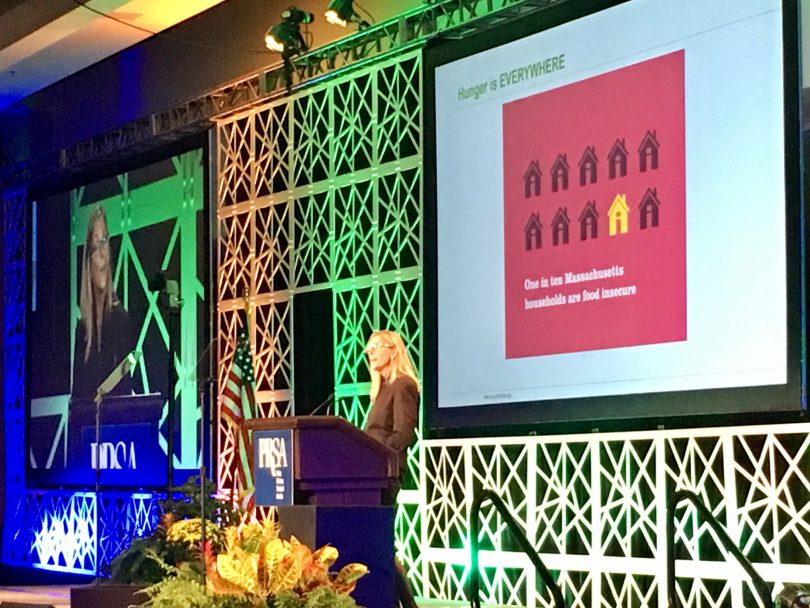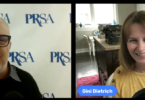As the director of marketing communications for Project Bread, a Boston-based organization that helps feed Massachusetts residents in need, Maureen Halley Lederhos approaches hunger as a complex problem with multiple solutions.
While speaking during Monday’s Networking Luncheon at the PRSA 2017 International Conference, Lederhos shared a recent Project Bread video that featured striking statistics about individuals in her state who lack access to nutritious food. For example, more than 675,000 residents in Massachusetts are “food insecure.”
“Change is the only thing we can be certain of,” she said. “The same can be said about hunger. It’s changing on a regular basis.”
Tackling a systemic problem
According to Lederhos, one out of every 10 households in Massachusetts suffers from food insecurity, which can range from families struggling with grocery funds (“They’re eating cereal for breakfast and cereal for dinner”) to individuals who don’t know where their next meal is coming from.
In other words, this is a problem of both today and tomorrow, and Project Bread’s goal is to feed people who are hungry right now, while also working to address the systemic changes that cause it.
To address Massachusetts’ hunger problem, Project Bread has implemented a variety of outreach programs in addition to its annual Walk for Hunger, which will be celebrating its 50th year in 2018 and has raised over $100 million to date. The organization’s advocacy work is based around a series of inspirational mottos:
- Protect our children.
- Serve up healthy with a side of dignity.
- Hunger is silent so we speak up.
- Plant a garden, grow a neighborhood.
Some of Project Bread’s initiatives range from developing a free cookbook for homeless families who reside in hotel rooms and lack access to proper kitchens to a program that provides incentives for people on food stamps to purchase fresh fruits and vegetables.
Lederhos admitted, however, that it’s sometimes difficult for Project Bread to successfully spread its message while complying with its own integrity principles. For instance, the organization refuses to exploit the faces of suffering individuals for marketing or advertising campaigns. “It’s always a challenge because we try to protect the dignity of those we serve at all costs,” she said.
But as long as there’s hunger, Lederhos and Project Bread are committed to figuring out the communications channels that will allow the organization to feed as many Massachusetts residents as it can.
“Good food is a basic right,” she said. “Everyone deserves access to nutritious food.”







